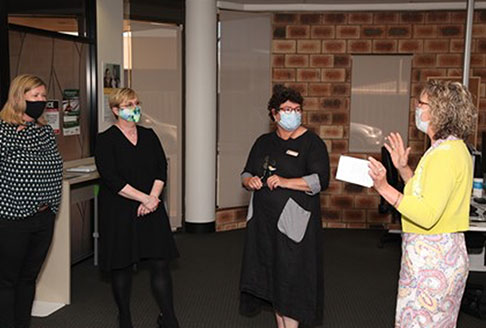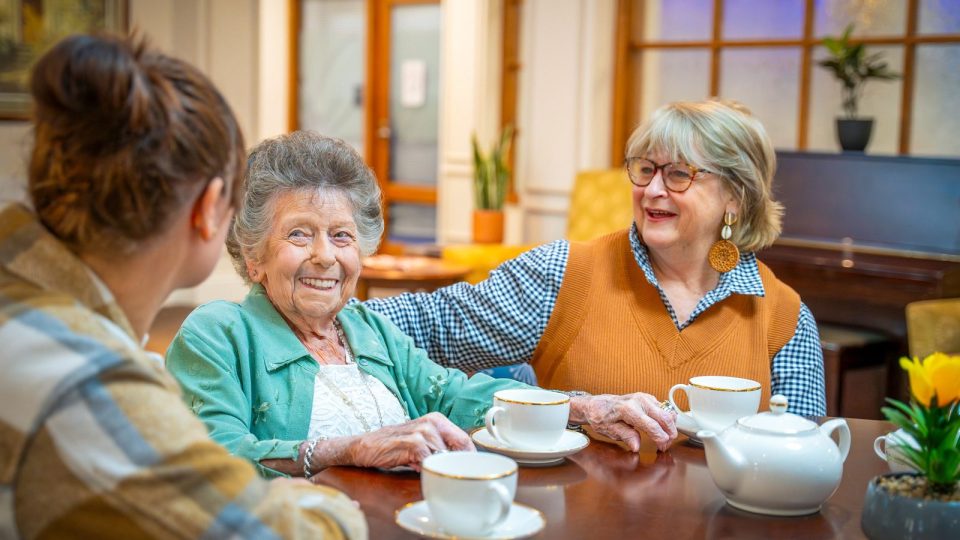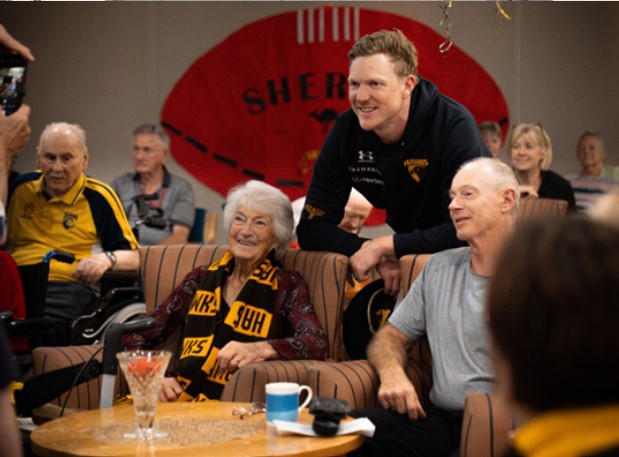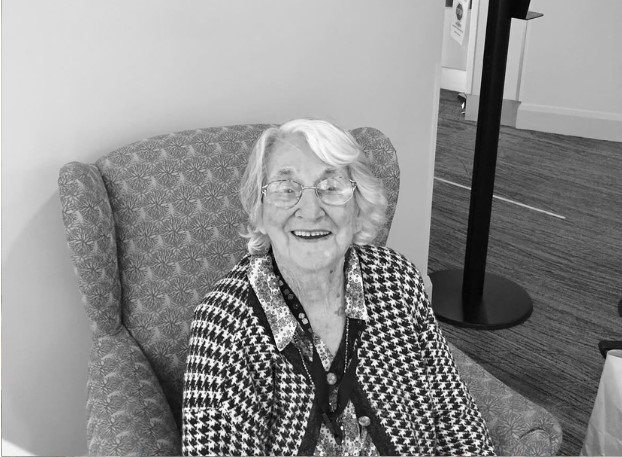Senator Linda Reynolds visits our Tasmanian office
- 09 Feb 2022

Baptcare’s Launceston office welcomed some special guests last week – Minister for the National Disability Insurance Scheme (NDIS), Senator Linda Reynolds and Bridget Archer MP – Liberal Member for Bass.
We were thrilled to share some of our work in the NDIS and Early Childhood Approach spaces, as well as some testimonials of inspirational clients whose lives have been transformed by the care of Local Area Co-ordinators and the NDIS across North and South-West Tasmania. You can watch some of these stories here: An Ordinary Life
‘These good news stories reflect the true intent of the NDIS scheme’ commented Senator Linda Reynolds.
The Minister was also very complimentary of the ‘true person centred’ approach that Baptcare takes with all aspects of our interactions with participants. She commented that we’ve always been proactive in consulting with acknowledged leaders within the industry to find a way to solve identified gaps.
We feel that this observation was a testament to the very heart of Baptcare. Our work in this space is an example of our mission in action, striving to take positive actions to assist people with disability to be able to live their best lives.
Amanda Williams, NDIS Community Manager at Baptcare commented that ‘Senator Reynold’s visit made me realise that I am working for an organisation that truly cares, and who takes positive actions to assist peoples with disability to be able to live their best life.’
You can read more about Baptcare’s work in this space at baptcare.org.au/services#disability-services
Community news
-

How to talk to a loved one about moving into aged care
One of the most challenging conversations we may have with our loved one is about whether it’s time to consider moving into residential aged care. Whether it’s a parent, grandparent, or partner, the topic can stir feelings of resistance and guilt. But when approached with empathy, patience and deep respect for the individual’s wishes, this conversation can become a meaningful step toward greater safety, comfort and connection.
- 18 Feb 2026
-

Hawthorn stars bring footy fun to Abbey Gardens
There was no mistaking the colours at Abbey Gardens Residential Aged Care Community in Warragul this week – brown and gold as far as the eye could see. Residents and staff donned their finest Hawthorn Football Club gear as players and support staff arrived for a visit, chatting with residents, signing autographs and bringing plenty of footy fun.
- 18 Feb 2026
-

Dressmaker, traveller, Bulldogs fan and volunteer – Thelma turns 100!
Thelma Powell, beloved resident and former volunteer at Westhaven, turned 100 on 9th February 2026 with balloons, party hats, and cake! Surrounded by her family, care team, the local MP, and Mayor, as well as a representative from her beloved footy team, the Bulldogs, it was a day to remember.
- 13 Feb 2026
